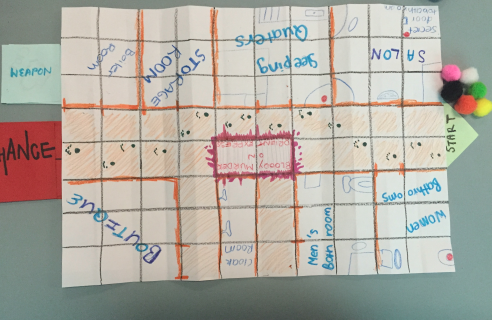Board games are ways where individuals can have fun, but also learn. Good board games can build learning skills and can encourage players to detect patterns, learn from experience and plan ahead. Educause (2014) state how the interactive dynamic of games have the ability to advance teaching and learning.
Robinson (2006) explains how every individual has the capacity to be creative. Last week in tutorial classes, working in groups, we were able to physically plan and construct our virtual board game, demonstrating truth to this statement. The game was called Bloody Murder on Orient Express, which had multiple rules in order to participate successfully. The objective of the game was to stimulate problem solving skills, involving the action of elimination, critical guessing and examining with other players.The game was inspired by the existing game ‘Cluedo’, where members are required to determine who murdered the president.
If we were able to further develop the game, “what aspects of learning would you like to be evident?”


References:
Educause. (2014). 7 Things You Should Know About Games and Learning. 2014(October). Retrieved from http://www.educause.edu/library/resources/7-things-you-should-know-about-games-and-learning
. (2016). YouTube- Do schools kill creativity. https://www.youtube.com/watch?v=iG9CE55wbtY
